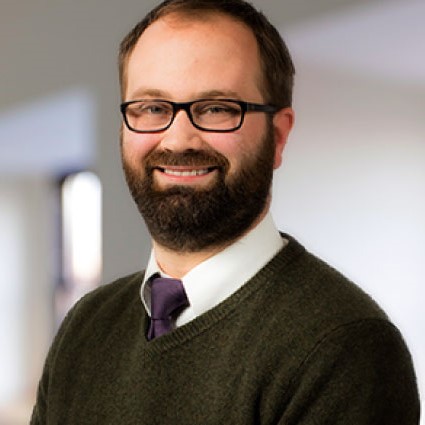Is there still a military/civilian gap, and why does it seem to get bigger? What can we do about it? Dr. Klassen, an expert on mental health issues and treatment, talks about the fact that unlike generations ago when far more people—from all walks of life—served in the military, it being a sort of rite of passage with a shared mission, fewer people in the general population serve today. This divide can lead to a sense of isolation and not feeling understood or respected in the military communities. That said, there are currently more and more organizations focusing on bridging the military/civilian gap.
Brian Klassen, PhD, is the Clinical Director of the Road Home Program, part of the Wounded Warrior Project's Warrior Care Network.
For information about treatments for PTSD please visit The Treatment Hub.
Hi, I’m Dr. Klassen. I’m a clinical psychologist and here’s our question: “Do you believe there’s a military civilian divide? Can anything be done to bridge the gap between military and civilians?”
I do think there’s a military civilian divide, and I think it’s pretty well documented. Just less and less of the general population serves in the military. I think it’s around the single digits, percentage-wise. And you know, a few generations ago military service was quite common, it was a rite of passage for many people. And so, what was good about that is you have this kind of shared sense of like what it meant to serve. And it was a way that you would encounter many different kinds of people from all walks of life, different kind of racial and ethnic backgrounds were like mixing.
And I think what I see is like this kind of fragmenting of society more and more. Is that people have talked about this sort of warrior class where we have less and less people doing more and more in terms of military deployments, being away from their families, fighting in combat. And so, the effects of that is that those people are placed under increasing strain. Their families are sacrificing more and more and you know, there’s some pretty intense challenges as a result.
So yes, I do think there’s a military and civilian divide. I think this divide really has a negative effect on many of the people that I work with. The military and civilian divide really leads to this sense of isolation, of loneliness, of, I think, veterans not feeling that their kind of roles or sacrifices are really known and respected by the kind of larger civilian community, which I think can lead to a lot of despair, a lot of misery, a lot of moral injury also, frankly, that I think also is in the mix with the sort of post-traumatic stress or depression or substance use disorders that I might be working with clinically with a person.
One ray of hope that I see for bridging this gap has to do with the work the organizations are doing like Team Red White and Blue and like The Mission Continues. These are organizations that try to pair military veterans with their civilian counterparts and with this like shared goal of service. So, getting back in their communities and giving back in some way.
And so what I like about that is it gives the civilians a chance to meet people who’ve served and talk openly with them about their service and what their service meant. So, they get to learn the traumas, the hardships, the sacrifices that many of these men and women have given for the greater good. But it also allows the military veterans to be in touch with the civilian side of things, the civilian perspective, but also to have a sense of purpose.
And I think one thing that I’ve heard from many military veterans is that once they leave military service they’re sort of lacking a mission, they’re lacking a connection to something larger than themselves. And so I think the Work of the Mission continues, Team Red White and Blue, dozens of organizations all over the country are doing, really helps people tap back into that. Thank you for the question.
BrainLine is powered in part by Wounded Warrior Project, to honor and empower post-9/11 injured service members, veterans, and their families.
About the author: Brian Klassen, PhD
Brian Klassen, Ph.D., is the Clinical Director for The Road Home Program: The National Center of Excellence for Veterans and Their Families at Rush University in Chicago, Illinois. Brian spent his formative years training at the Jesse Brown VA Medical Center, completing rotations in chronic pain management, residential substance use disorder treatment, and PTSD. Brian has special expertise in providing front-line treatments for PTSD, including Prolonged Exposure and Cognitive Processing Therapy.

